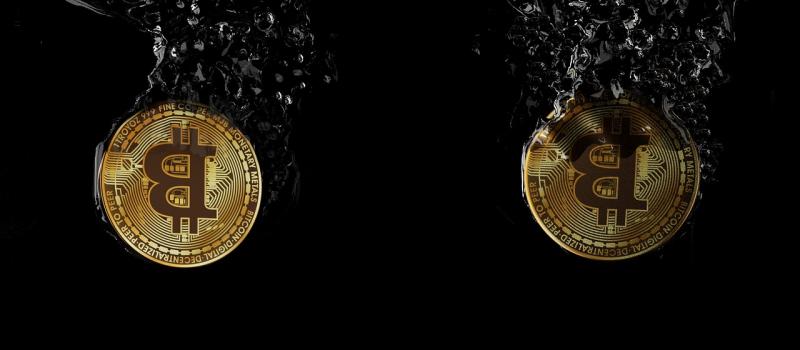Institutional Crypto Terms
posted by Collin Canright on March 30, 2018 - 1:59pm

The dramas of volatility in the price of bitcoin and scams in "coin"-offering fundraising schemes overshadow legitimate cryptofinance developments.
For nearly the last year, crypto-coins have been developing into an asset class and investment ecosystem. From two conferences I attended this year, one in Chicago and the other in Singapore, it seems to me that the Chicago firms see the opportunities for developing trading infrastructure while the Asian investors and regulators see real possibilities for financial innovation.
Both want to profit by taming an unruly new investment class.
The present future of tokenized fundraising
But what exactly does "crypto" mean, if not bitcoin and initial coin offerings (ICOs) with all their baggage? Definitions of the terms of the emerging "crypto economy," as proponents call it, and its controversial components are becoming more exact and distinct:
Cryptocurrency. Used initially to describe bitcoin, which was designed as a currency, a medium of monetary exchange. Refers generally to digital currencies secured by cryptography for payments.
Crypto-token. Used initially to distinguish between bitcoin and Ethereum, a network of "smart contracts" or applications designed to extend beyond currency functions. Refers to the bit of cryptographic code that represents and expresses the ownership and value of an application or asset.
Cryptoasset. Used to refer to any asset represented cryptographically in the form of a crypto-token. Assets represented in this way are said to be "tokenized."
"It's the tokenization of the asset that's the revolution," says Dave Birch, director of innovation, Consult Hyperion, a London-area consultancy that specializes in secure transactions, speaking Mar. 15 at Money20/20 Asia.
"Tokenization can create transparency and universal access and the ability to reduce frictional costs," according to Jonathan Larsen, chief innovation officer of Ping An Group, Shenzhen, China, and head of the Ping An Global Voyager Fund.
"I have no doubt about the opportunities (of tokenization) to reduce friction across every asset class and to create fractionalization of assets where it does not exist today. That means if you own a home and if you could use tokens to express the equity in your home, you could sell that equity or use it as collateral in a much easier way than our current paper-based processes."
The requirements for going institutional
At this point, however, creating tokens based on real assets is not easy, according to Henri Arslanian PwC's FinTech and RegTech lead for China and Hong Kong. "In practice, it's extremely difficult."
What are the tax implications? What are the guarantees that the assets are there? What are they worth? "Right now, none of the Big Four audit crypto," Arslanian notes.
In order to attract institutional investments, crypto-tokes will have to work like traditional securities, require the same infrastructure as traditional securities, and be regulated like traditional securities.
In the absence of that, they will remain on the fringes, yet the potential suggests otherwise. "ICOs are tokens minus the assets," quips Larsen. "They are the training wheels for the token economy."
Speakers at a Feb. 15 conference in Chicago hosted by FinTech accelerator FinTank and Northwestern University School of Law listed the following requirements for the institutional investments that did not materialize last year, as market participants had expected—or hoped.
- Reliable exchanges that are secure and can provide fast access to liquidity.
- Third-party custodians and auditors, especially for asset-backed tokens.
- Easier settlement mechanisms between national fiat currencies and crypto-tokens.
- Independent research and valuation methodologies.
- Regulation and legal structures, especially for the retail markets that inevitably will develop.
A monetary irony
Part of the drama lies in the confusion between crypto-tokens for use as money—what they were designed to be—and their present state as a nascent, highly speculative asset class. Dreams of a libertarian economy without central authority have given way to investment potential requiring centralized infrastructure and regulation for growth.
Few if any central bankers see tokens as a means of exchange, a stable store of value, or a unit of account. "No crypto-token meets these three criteria in sufficient measure to qualify as money," says Ravi Menon, managing director at the Monetary Authority of Singapore (MAS).
In the meantime, central bankers at MAS are watching the development of cryptocurrency trading on regulated exchanges in the United States to see how it works out. "MAS has chosen to date not to regulate crypto tokens directly," Menon says. "Regulation should not try and front-run innovation."
MAS chief FinTech officer Sopnendu Mohanty puts it like this, "We have to be guide dogs before we can be a watchdog."
While the traders build a real infrastructure for a new asset marketplace, hoping to profit while the market is still young, the wild West of ICOs and the swings of volatility will continue to get the attention. Institutional investors will rightly stay away, but the smart ones will pay attention.

